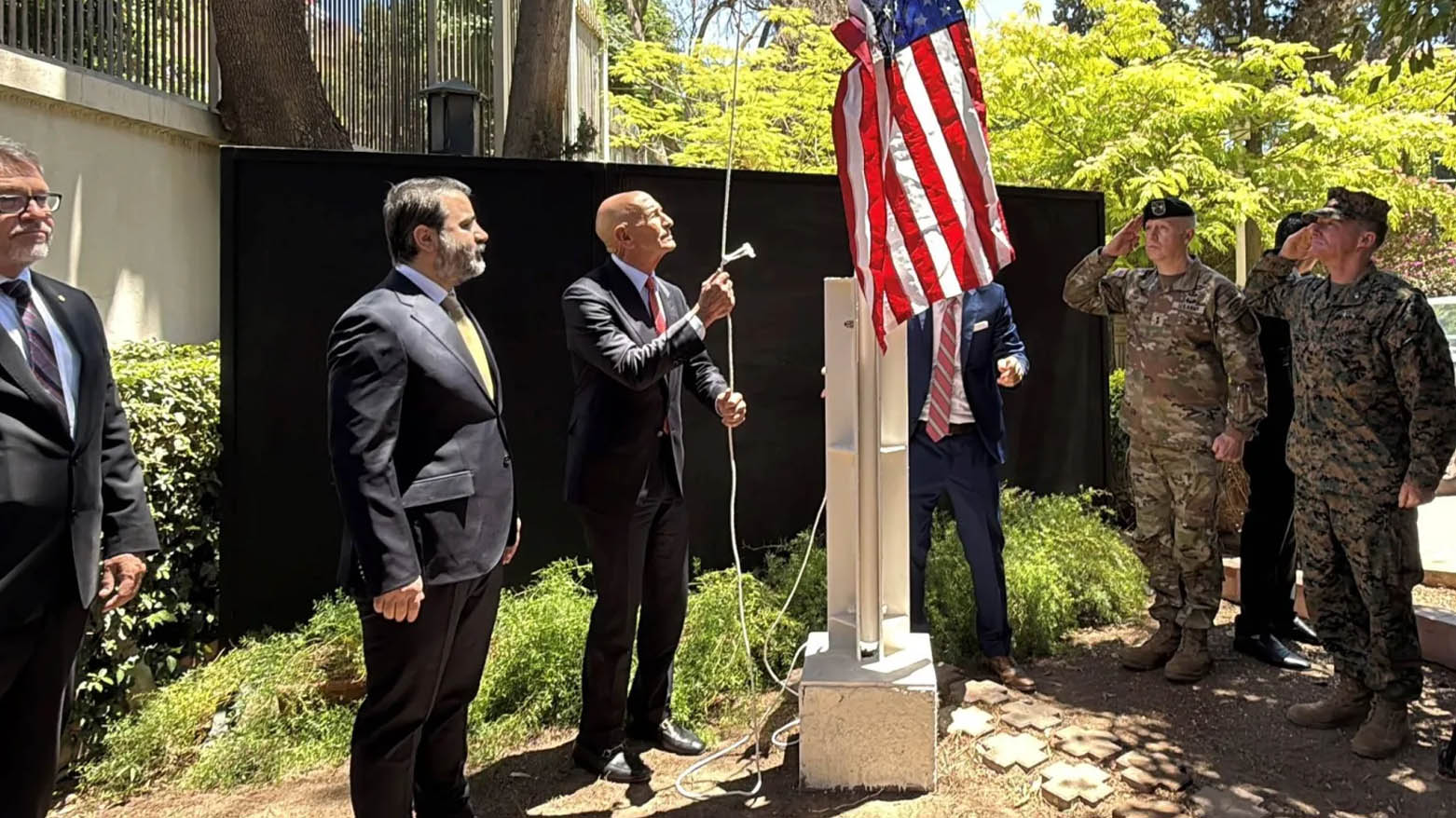US Envoy Meets Syria’s President at Reopened Damascus Embassy, Announces $7 Billion Energy Deal
Syria signed a $7 billion energy agreement on Thursday with a consortium of Qatari, American, and Turkish companies. The deal aims to generate 5,000 megawatts of power—meeting nearly half of Syria’s electricity demand and kickstarting the country’s economic recovery.

ERBIL (Kurdistan24) — In a significant diplomatic move that may mark a turning point in U.S.-Syria relations, Syrian President Ahmed al-Sharaa met with U.S. Special Envoy Thomas Barrack on Thursday at the newly reopened U.S. Embassy compound in Damascus. The symbolic reopening—carried out jointly by Syrian Foreign Minister Asaad Shaybani and Barrack, who also serves as the U.S. Ambassador to Syria—underscored a new chapter of engagement between Washington and Damascus.
The high-level meeting included discussions on lifting economic sanctions, cooperation on counterterrorism, and rebuilding bilateral ties after years of political estrangement. Barrack also met separately with President al-Sharaa later that day to delve deeper into the prospects for economic revival and stability in the war-torn country.
Speaking to the press, Barrack relayed U.S. President Donald Trump’s evolving position on Syria, stating that “Syria is no longer a state that supports terrorism.” He emphasized the continued presence of U.S. forces in Syria as part of efforts to “eradicate ISIS” and noted the importance of paving the way for lifting sanctions that have paralyzed Syria’s economy since they were imposed under Trump’s earlier executive order.
This visit marked Barack’s first to Syria since the sanctions were lifted and follows an official Syrian media announcement on Saturday, confirming his scheduled meetings with the new president and foreign minister. The diplomatic activity has triggered widespread speculation about an imminent policy shift.
Last Friday, ahead of his arrival, Barrack posted on X that suspending the sanctions “could help dismantle ISIS in Syria and pave the way for reconstruction and stability.” He also stressed the need for full implementation of President Trump’s updated directive, describing sanctions relief as “an opportunity for the Syrian people’s future.”
Following the meetings, Barrack stated that recent talks in Istanbul with both President al-Sharaa and Foreign Minister Shaybani had focused on “implementing Trump’s decision to suspend economic sanctions and reinstate economic prosperity and peace in Syria.” He also highlighted Washington’s commitment to eliminating ISIS and praised President al-Sharaa’s efforts to strengthen ties with Israel.
$7 Billion Energy Deal Signals Economic Reboot
In a landmark development tied closely to this thaw in relations, Syria signed a $7 billion energy agreement on Thursday with a consortium of Qatari, American, and Turkish companies. The deal, signed at the Syrian presidential palace in the presence of President al-Sharaa and U.S. Envoy Barrack, aims to generate 5,000 megawatts of power—meeting nearly half of Syria’s electricity demand and kickstarting the country’s economic recovery.
This investment marks the most substantial international commitment to Syria’s infrastructure since the civil war began in 2011 and is widely viewed as the first concrete outcome of renewed U.S.-Syrian engagement, following the fall of Assad's regime. The joint reopening of the U.S. Embassy compound in Damascus and the high-profile energy deal signal that both nations may be preparing for a more constructive—if delicate—path forward.
